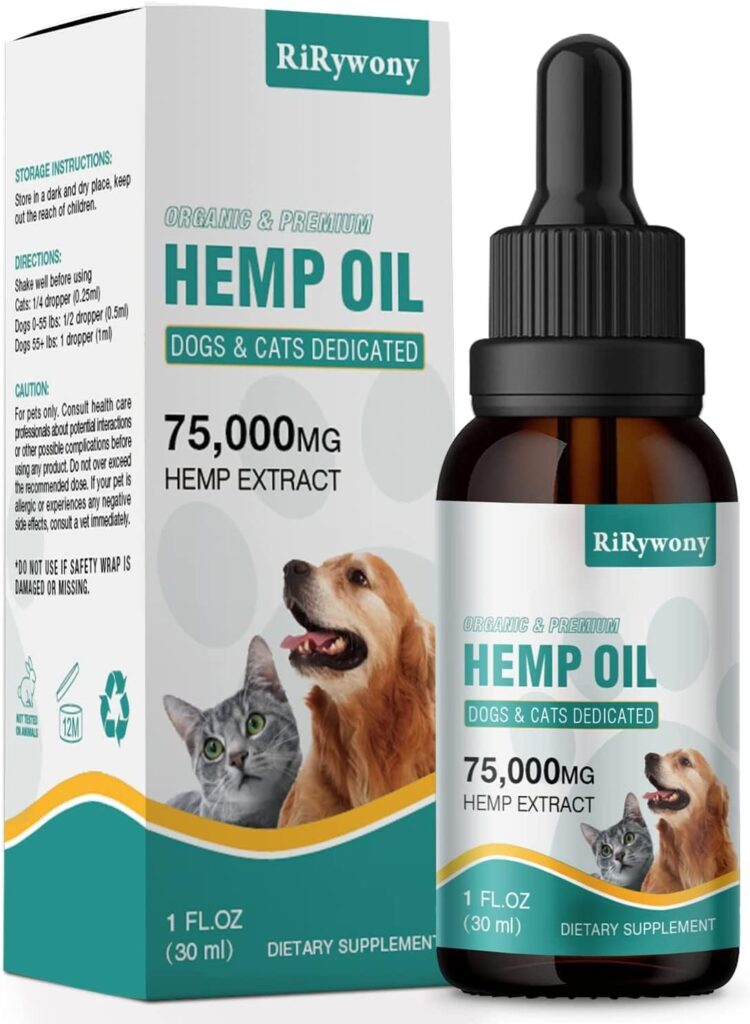CBD has gained popularity in recent years. This comes as no surprise, given the heightened knowledge of its potential benefits. Can our fluffy pals benefit from CBD as well?
CBD for animals is being offered by an increasing number of companies, and pet owners all around the world are eager to test it in its different forms. Some vets currently feel that CBD oil can cure both mental and physical disorders.
Let us go over this further.
1. CBD at home for pets
In general, the reason for taking CBD oil for pets is the same as it is for humans: to get the benefits of this oil.
If you own a dog, you may already be aware that CBD can help with a variety of diseases, including allergies, anxiety, cancer, joint problems, pain, seizures, and epilepsy. It is essential that you be highly attentive and only purchase top-quality CBD oils to provide your furry buddy the finest experience possible, which can be difficult.

Organic, toxin-free oils appear to be the most secure. Furthermore, avoid purchasing items that include butane, hexane, or propane (possibly hazardous solvents). Furthermore, because THC is commonly found in CBD oil, we recommend purchasing THC-free CBD oil. THC can be poisonous to dogs, but CBD is theoretically safe and will not get your pet high.
If you love cats, you’re probably aware that as they age, there appetite and metabolism shift in tandem with their immune system. CBD for cats can be really helpful in this area. CBD oils for such dogs feature no flavor additives or sugar, are available in lesser potencies, and may contain some enticing flavorings, such as sardine oil. Make sure the full-spectrum oil has less than 0.2% THC.
Here’s one more thing to consider. Plant-based fatty acids are not suitable for intake by cats because they are carnivores. As a result, make sure the CBD oil you buy for your cat contains low levels of coconut or other essential oils.
2. What scientific research has been done on CBD oil in dogs?
Dog owners should be glad since the usage of CBD in dogs has been extensively researched by scientists all over the world. A study on the pharmacokinetics, safety, and clinical efficacy of cannabidiol in osteoarthritic dogs was published in Frontiers in Veterinary Science in 2018.
Cornell University academics conducted the investigation. The most frequent type of arthritis in dogs is osteoarthritis. Osteoarthritis is the progressive and irreversible degeneration of a dog’s joints. Pain, stiffness, and lameness are symptoms of this illness. A study found no obvious negative effects of CBD oil, as well as a significant reduction in pain and an increase in activity.
In 2019, Colorado State University did another investigation on the potential impact of CBD on the frequency of epileptic seizures in dogs. The findings were hailed as “promising and encouraging” by Dr. Stephanie McGrath. Nine canines were given CBD as part of the trial, while seven in a control group were given a placebo. Anticonvulsant medications were continued in all of the dogs tested. The number of epileptic seizures dropped in 89% of the dogs who took CBD in the clinical experiment, according to the researchers.
This post contains referral links for products we love. Staying Fit With Aeran earns a small commission on these links at no cost to you, and the links will always be marked with an asterisk *.
3. CBD and the animal endocannabinoid system
The endocannabinoid system (ECS) is a network of receptors and natural signaling molecules found throughout the body that is shared by humans and nearly all animals. This system monitors the basic activities of the body and aids in healing, maintaining balance, and relaxation. The brain has the bulk of endocannabinoid receptors. It can be extremely difficult for animals to maintain proper levels of endocannabinoids whether they are injured, unwell, elderly, or agitated.
The ECS is made up of cannabinoids, enzymes, receptors, and other molecules that are connected to various systems. CBD interacts with enzymes and receptors in the endocannabinoid system, which can improve mood and brain function as well as boost the overall well-being of dogs. While your pet has its own endocannabinoids, the ECS responds to the cannabinoids found in hemp oil,* which can be administered directly or given orally or in the form of food or supplements.

4. CBD administration to animals
CBD products can be administered to animals. Indeed, it can be inferred that an increasing number of people are interested in learning about the benefits of CBD for dogs. CBD is now being explored in human medicine, although its potential effectiveness in animals is not widely known. Nonetheless, CBD is thought to benefit your pet in a variety of ways.
When creating CBD solutions, we always employ natural ingredients and extraction methods. There are no flavorings or essential oils in our CBD oils. Furthermore, in order to give the best products, we adhere to leading international standards and certifications. Cat owners, for example, can experience the potential benefits of these products by selecting either full-spectrum CBD oil or THC-free water-soluble CBD tincture. Due to THC’s toxicity, dog owners should remember that CBD oil for their pets should not contain THC.
5. What should you know about CBD for animals?
Another important topic to cover is the legal status of CBD products for pets in Europe and the rest of the world. In Europe, CBD is legal in most nations. However, it is mostly used to treat humans.
When it comes to pets, adequate law is still in the works. As an example, consider the Frontiers in Veterinary Science released the findings of an online survey of over 2,000 US veterinarians in January 2019. According to the poll, 61.5% of veterinary respondents felt comfortable discussing the usage of CBD products with their colleagues.
Veterinarians had also discussed with clients the possibility of administering CBD to their pets to alleviate anxiety, discomfort, seizures, and even storm and fireworks phobias.
According to the British Veterinary Medications Directorate, cannabidiol-containing veterinary goods are veterinary medications and should be regulated accordingly. As a result, before CBD products for animals may be sold or provided in the UK, they must first get marketing authorization. Currently, no CBD-containing product has been awarded veterinary marketing authorization in the United Kingdom.
CBD is classified as a new food by the European Food Safety Authority. CBD products can enter European markets with little difficulty, thanks to this definition. Because there are no potential health risks, the European Union allows the possession and consumption of CBD products. Each EU member country, however, has its own CBD regulations. We recommend that you research the unique CBD regulations of a country before traveling there.
Veterinarians had also discussed with clients the possibility of administering CBD to their pets to alleviate anxiety, discomfort, seizures, and even storm and fireworks phobias.
6. What factors must be considered?
A few points must be explained in order to properly comprehend the difficulties surrounding the intake of CBD products. To begin, a CBD product might be classed as a medicine or a food supplement, which determines the legal implications. Whatever European country you visit, make sure to buy CBD products from licensed and official outlets.

Furthermore, in many European countries, pet health insurance is almost mandatory. In 1890, Sweden launched the first health insurance scheme. Today, 80% of Swedish pet owners have pet insurance, but just approximately 3% of pet owners in the United States do. Because of the growing popularity of CBD drugs and products for pets, pet health insurance in Europe now includes CBD and medicinal cannabis. Hopefully, additional revisions and changes to the official EU law on CBD will be made soon.
